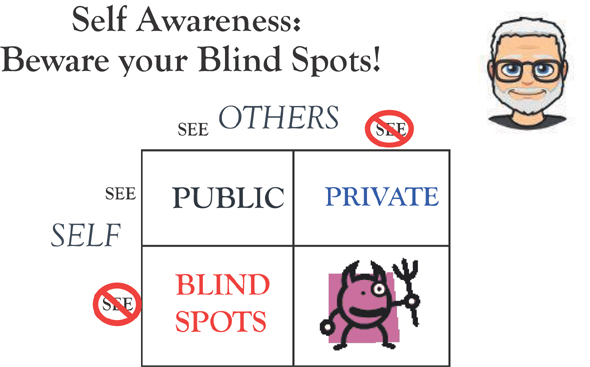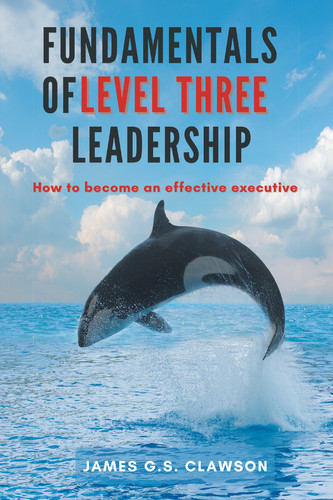Concept
The first element of self-understanding is enigmatic, self-awareness. We know what we know about ourselves, except if what we know about ourselves is incorrect, and except if what we know about ourselves isn’t everything there is to know about ourselves. What can we know about ourselves? And is it even important.
Many people are disdainful about this issue. They know what they know about themselves and that’s good enough for them. Anything further is useless “navel gazing.” You can decide whether you are one of those or someone who wants to learn more about what you know about yourself and whether that may affect your ability to lead.
Alan Watts once noted, “Self-knowledge leads to wonder, and wonder to curiosity and investigation, so that nothing interests people more than people, even if only one’s own person. Every intelligent individual wants to know what makes him tick, and yet is at once fascinated and frustrated by the fact that one’s self is the most difficult of all things to know.” The Book: on the taboo against knowing who you are (Alan Watts 1966, 139–140). Hmm. Perhaps. Do you think?
One way to think about this was developed a number of years ago by creating a two-by-two table comprised of things that Other people see and don’t see and things that We see and don’t see. The so-called Jo-Hari Window (have you heard of this before?) looks like this:
OTHERS |
|||
SEE |
NOT SEE |
||
SELF |
SEE |
||
NOT SEE |
|||
You can see that in the upper-left cell is the domain of things that both we and others agree on. We might call this public information. In the upper-right cell we have things that we see or know that others don’t know or see. These would be our personal thoughts that we don’t share, our secrets if you will. We could call this domain the private domain. The lower-right cell, domain that neither We nor They see or know, might contain some kind of psychological swamp of genetic, brain chemistry, and uncontrollable impulses.
THEN, in the lower-left cell, what Others see that We don’t see, we have the domain that others observe in us that we are unaware of. This domain we could call our Blind Spots. In every seminar I have ever taught on six of the seven continents, every participant has agreed that they have blind spots. It’s kind of a cheap joke to ask them, “how do you know?” Most reply that their spouses tell them what their blind spots are.
These blind spots could be any number of things. Things we say that annoy others. Perhaps that we tend to interrupt others. Or discount what they say. Or contradict others. Or condescend to them. Or contradict ourselves. Perhaps it’s body odor. Or a tendency to exaggerate. Or to lie.
Then, there’s the issue that if one becomes aware of one’s blind spots, what do we do with them. We would like to think that if others were kind enough, or even if they were not so kind, to tell us what our blind spots are, especially our dysfunctional ones, we would want to reduce them, shrink them, become better people. Unfortunately, this is not what most of us see at family reunions, is it? I have a friend who defines aging as more so. That is, as people age, they just become more so as they were.
Most people do not become of aware of their blind spots, and if they do, they don’t change them. That said, it’s a choice. You can change your blind spots, your unknown habits, once and if you become aware of them. It won’t be easy, and it’s a choice. You can change your speech habits, your interpersonal habits, your assumptions about how people should behave.
On the other hand, if you never become aware of your blind spots, the ways in which your behavior is off-putting to others, you may never know why your attempts to lead, to influence, are not so effective as you believe they should be. If you want to continuously improve your ability to influence others, you must continuously learn how your behavior influences other people—and that means discovering your blind spots— and working on them.

Challenge
1. How would you describe yourself?
2. What do you think other people think of you?
3. Do you have any friends who will give you an honest answer? If so, ask them.
4. What parts of your personality do you need to manage better to become a more effective leader?
